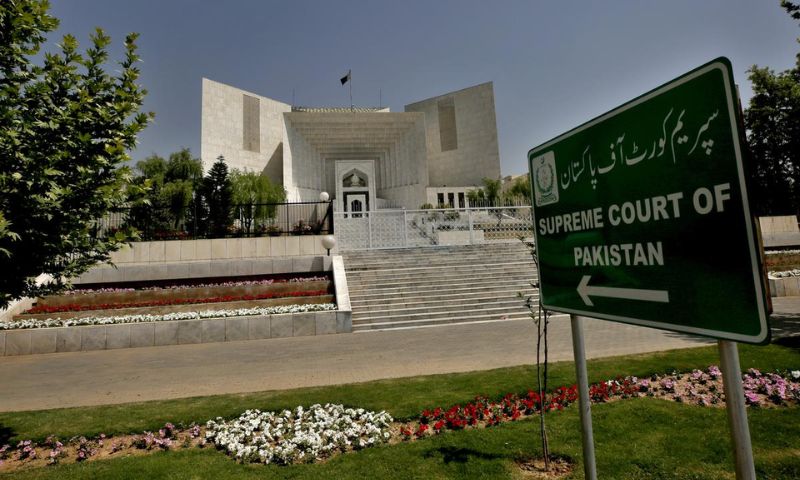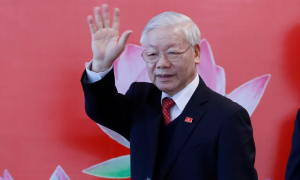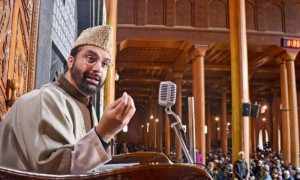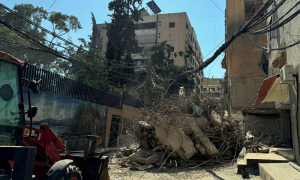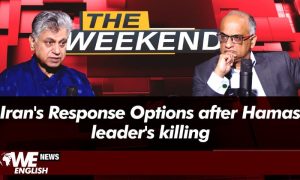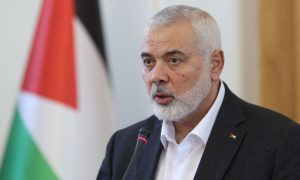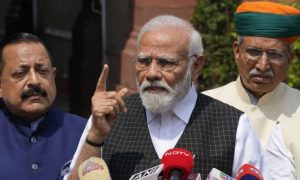By Special Correspondent
ISLAMABAD: The Supreme Court of Pakistan Wednesday adjourned the hearing in Pakistan Tehreek-e-Insaf (PTI) Chief Imran Khan’s appeal against the August 3 Islamabad High Court (IHC) order of remanding the Toshakhana case back to sessions court until tomorrow (Thursday) at 1pm with an observation that prima facie, there are shortcomings in the trial court verdict.
Chief Justice Umar Ata Bandial said the Supreme Court would wait for the IHC order on PTI Chairman Imran Khan’s appeal against his conviction and sentence in the Toshakhana case before “interfering” in the matter. He observed, prima facie, there are shortcomings in the trial court verdict.
On August 5, a district and sessions court in Islamabad found PTI chairman guilty of “corrupt practices” in the Toshakhana case pertaining to allegedly concealing details of state gifts and sentenced him to three years in prison. After the court sentencing him, Khan also stood disqualified from contesting elections for five years.
Subsequently, Khan approached the IHC against his conviction and sentence. On Tuesday, the IHC adjourned the case till tomorrow (Aug 24).
The three-member bench of the top court headed by Chief Justice of Pakistan (CJP) Umar Ata Bandial and consisting of Justice Jamal Khan Mandokhel and Justice Sayyed Mazahar Ali Akbar Naqvi heard the case.
During the hearing, the three-member bench heard arguments by PTI lawyer Latif Khosa and Election Commission of Pakistan’s (ECP) counsel Amjad Pervaiz. After hearing the arguments, the chief justice said, “We will not interfere in the Toshakhana case today … we are looking at the IHC hearing scheduled to be held tomorrow and then resume the proceedings.”
Imran’s lawyer Latif Khosa told the court that the PTI chairman had filed three petitions against IHC orders in the top court. He recalled that Imran was elected as a member of the National Assembly from Mianwali during the 2018 elections and that six MNAs had submitted a reference to the speaker seeking the PTI chief’s disqualification.
The MNAs, according to Khosa, had accused Imran of submitting an incorrect declaration of his assets. The speaker then sent the reference to the ECP under Section 137 of the Election Act. Here, Justice Naqvi asked the lawyer to read out the said section of the Act.
Continuing his arguments, Khosa contended that the ECP could only conduct an inquiry within 120 days. “Can one MNA send a reference against another member?” Justice Naqvi asked, to which the lawyer replied that no one could send a reference and the ECP too could only conduct an inquiry within a fixed time.
“Action can be taken within 120 days after submission of financial statements,” Khosa maintained adding that only the NA speaker could send a reference to the ECP, not a member.
Earlier in the morning, PTI chief, through his lawyer, filed a fresh petition in the Supreme Court seeking the transfer of all of his cases pending before the IHC to the high courts in Lahore or Peshawar. The petitioner claimed that the IHC CJ was biased against him and was trying to keep him behind bars to prevent him from contesting the upcoming general elections.
The case alleges that Imran had “deliberately concealed” details of the gifts he retained from the Toshaskhana — a repository where presents handed to government officials from foreign officials are kept — during his time as the PM and proceeds from their reported sales.









